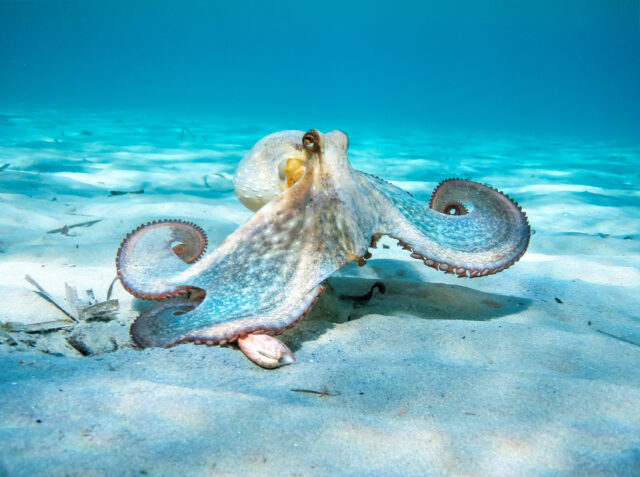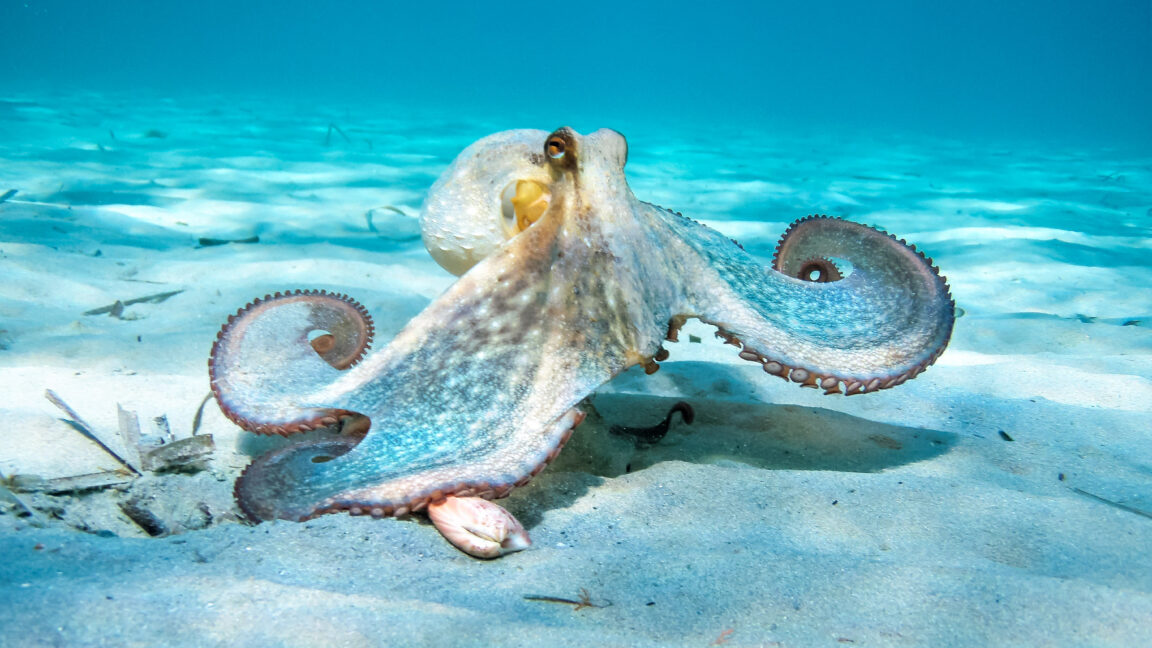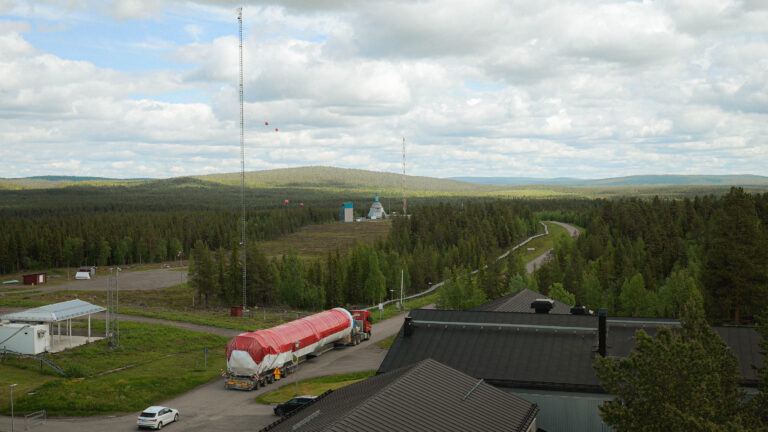With their quick-change camouflage and high level of intelligence, it’s not surprising that the public and scientific experts alike are fascinated by octopuses. Their abilities to recognize faces, solve puzzles, and learn behaviors from other octopuses make these animals a captivating study.
To perform these processes and others, like crawling or exploring, octopuses rely on their complex nervous system, one that has become a focus for neuroscientists. With about 500 million neurons—around the same number as dogs—octopuses’ nervous systems are the most complex of any invertebrate. But, unlike vertebrate organisms, the octopus’s nervous system is also decentralized, with around 350 million neurons, or 66 percent of it, located in its eight arms.
“This means each arm is capable of independently processing sensory input, initiating movement, and even executing complex behaviors—without direct instructions from the brain,” explains Galit Pelled, a professor of Mechanical Engineering, Radiology, and Neuroscience at Michigan State University who studies octopus neuroscience. “In essence, the arms have their own ‘mini-brains.’”
A decentralized nervous system is one factor that helps octopuses adapt to changes, such as injury or predation, as seen in the case of an Octopus vulgaris, or common octopus, that was observed with nine arms by researchers at the ECOBAR lab at the Institute of Marine Research in Spain between 2021 and 2022.
By studying outliers like this cephalopod, researchers can gain insight into how the animal’s detailed scaffolding of nerves changes and regrows over time, uncovering more about how octopuses have evolved over millennia in our oceans.
Brains, brains, and more brains
Because each arm of an octopus contains its own bundle of neurons, the limbs can operate semi-independently from the central brain, enabling faster responses since signals don’t always need to travel back and forth between the brain and the arms. In fact, Pelled and her team recently discovered that “neural signals recorded in the octopus arm can predict movement type within 100 milliseconds of stimulation, without central brain involvement.” She notes that “that level of localized autonomy is unprecedented in vertebrate systems.”


 Loading comments...
Loading comments...
